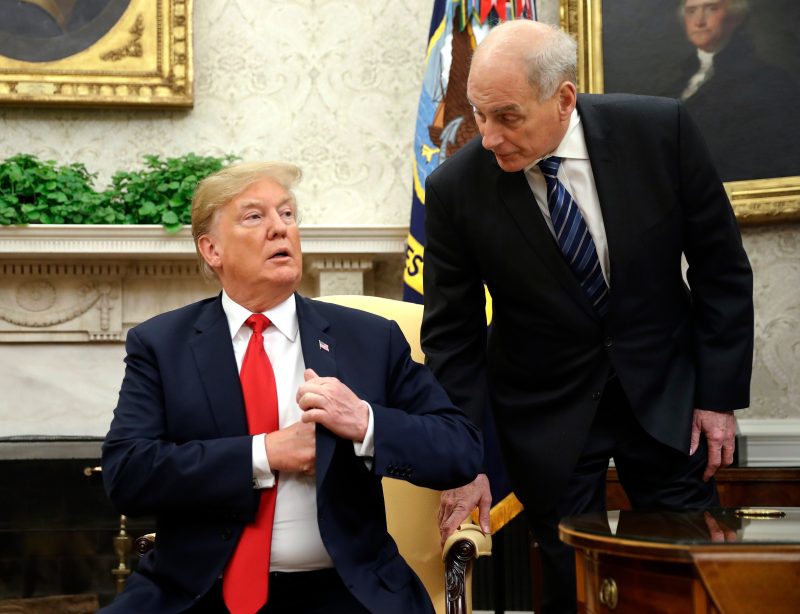In a recent interview with Axios on HBO, John Kelly, former White House Chief of Staff to President Donald Trump, made startling remarks about the former president, indicating that Trump meets the definition of a fascist. Kelly’s comments reflect a growing concern among some political figures and analysts regarding the divisive and authoritarian nature of Trump’s leadership style.
Kelly’s statements have ignited a fresh round of debate about the characterization of Trump’s presidency and its impact on American democracy. While some critics have long viewed Trump’s rhetoric and policies as aligning with fascist tendencies, Kelly’s assertion, given his former position within the Trump administration, adds a significant weight to the discussion.
The term fascist carries a heavy historical connotation, often associated with authoritarianism, nationalism, and ultranationalism. While some may argue that Trump’s policies, such as immigration restrictions and support for law enforcement, align with elements of nationalism, others contend that his attacks on democratic institutions and the free press signal a more alarming trend.
Kelly’s remarks underscore the complicated legacy of the Trump administration, which saw a significant increase in political polarization and a departure from traditional norms of governance. As a key figure within the administration, Kelly likely had unique insights into Trump’s decision-making processes and leadership style, which have raised concerns among supporters of democracy and civil liberties.
The debate over whether Trump meets the definition of a fascist reflects broader concerns about the state of democracy in the United States and the challenges posed by populist leaders. As political divisions continue to deepen, questions about the future of American democracy have come to the forefront, prompting a reevaluation of the values and principles that underpin the nation’s political system.
Ultimately, Kelly’s remarks serve as a stark reminder of the enduring impact of Trump’s presidency on American politics and society. Whether Trump’s actions and rhetoric truly align with the definition of fascism will continue to be a subject of debate and analysis, shaping the narrative of his presidency for years to come.

